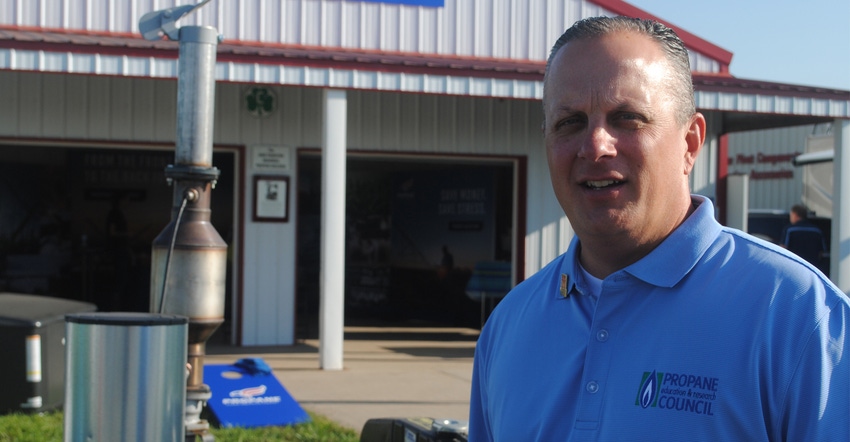
As talk about irrigation season begins, the Propane Education and Research Council notes the work the organization has been doing to produce new propane-powered equipment — including irrigation engines — that offers new capabilities and benefits to customers.
“The future of ag equipment lies in customized, high-efficiency technology that helps farmers cut costs and improve their bottom line,” says Mike Newland, PERC director of agriculture business development. “We know propane-powered equipment can do that.”
Newland cites the benefits to propane. “Clean, American-made propane can be used anywhere and anytime, giving farmers back control over their farm,” he says. “With propane, farmers don’t need to worry about access to gas lines or the power grid, peak pricing or sudden power outages.”
As an approved alternative fuel under the Clean Air Act, propane offers a reliable and easy way to meet Tier 4 standards and EPA regulations without additional steps or equipment. Propane does not degrade over time, Newland says, so producers can add storage options to make sure they have fuel on hand when they need it.
Propane supplies
“There has not been a shortage of propane supply in the U.S., with more than enough product to satisfy customer demand,” Newland explains. “However, there are limitations on safe transportation from supply points, especially due to delivery chain effects of the pandemic, as well as limitations on pipeline capacity.”
The propane industry does plenty of strategic planning for varied scenarios, constantly tracking trends so it can be prepared for extreme cold conditions that come along without much warning, such as those that happened in mid-February.
“We also encourage producers to communicate with their propane suppliers in advance to ensure they have what they need with no interruptions," Newland says. "Many propane marketers are also partnering with small businesses in their area to keep the supply chain full during unexpected events or circumstances.”
Heating it up
Propane generators can help producers remove the risk of sudden power outages, which can quickly damage operations and cause problems across the farm and ranch.
“Propane-powered heating solutions provide the consistent, precise temperatures needed for healthier animals and plants, while also cutting unnecessary costs,” Newland says.
Building heating systems powered by propane, including boilers, hot air furnaces or radiant heaters, are highly efficient and offer thermal efficiencies up to 95%, Newland says.
“On-demand tankless water heaters achieve high efficiency by eliminating the thermal standby losses from a storage tank and demonstrate efficiencies of at least 90%,” he adds.
For farmers interested in propane-powered irrigation equipment, heating systems or other equipment, data, research, case studies and information about incentive programs are available at propane.com/agriculture.
About the Author(s)
You May Also Like






